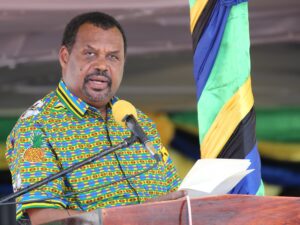
African music is on fire—like, hot-out-of-the-pan chips mayai (or zege, as the streets call it) kind of fire. Yet, when the 67th Grammy nominations dropped, the absence of TitoM and Diamond Platnumz, for example, was like discovering your favourite roadside chips mayai joint wasn’t on the “best restaurants” list. Tasty? Absolutely. Acknowledged? Not today.
Diamond’s Komasava and TitoM and Yupee’s Tshwala Bam were global sensations. But when it came to Grammy love, it seems someone forgot to invite the whole of Africa to the table this time around.
Sure, the Grammys gave us the shiny new Best African Music Performance category—like handing over a plastic fork while the others get silverware. It’s progress, but let’s hold off on the celebratory soda.
This year, Chris Brown’s Sensational landed a spot in the category, sparking mixed reactions. While it features Afro-inspired vibes, it raises the question: are we honouring African artistry or just borrowing the sound?
The issue? The Grammys still believe global success needs a Western accent. Forget the millions of streams on platforms like Boomplay and Audiomack; if it’s not viral on TikTok U.S. or playing at Coachella, it might as well not exist.
It’s like someone saying they “adore African culture” but only knowing two words: Hakuna Matata.
And honestly, what else does an African artiste have to do to get noticed? Diamond Platnumz has been running on turbo mode—world tours, bilingual hits, and collaborations spanning continents. TitoM and Yupee’s Tshwala Bam had clubs on lockdown across the continent and beyond.
Here’s the thing: African music doesn’t need validation to shine. It’s already redefining global charts, filling stadiums, and inspiring trends. But it would be nice if the Grammys stopped acting like they discovered African music yesterday.
Until then, we’ll keep vibing, munching on zege, and watching as Africa continues its global takeover—Grammys or not.
What do you think? Should we send the Grammys a sizzling plate of chips mayai with a side of hits, or wait for them to catch up on their own time?














